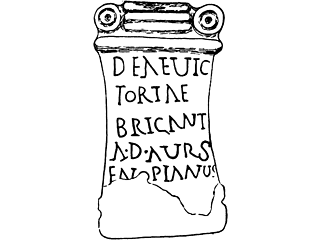Brigit: Saint or Goddess?

Brigit is unquestionably the most important sacred female figure in the traditions of Ireland and Scotland; but all the same there is uncertainty as to who, or indeed what, she was. On the one hand, abundant sources going back at least as far as the seventh century speak of a holy woman who died in 524, founder of the great church of Kildare which at one time claimed supremacy over all other churches in Ireland. But other texts speak of a goddess Brigit, presiding over poetry, metalworking and healing; and Brigit’s name is directly related to that of a British goddess, whom the Romans called Brigantia.
Many are inclined to disregard the goddess (about whom we know very little) and to focus on the saint (who has been the focus of widespread devotion for something like one and a half millennia). Others – including many modern pagans – consider the saint to be “really” just the goddess, reinterpreted. Disagreement on this question is not likely to go away. But one set of indications points, quite clearly, to an old and significant relationship between the goddess and the saint.
Several inscriptions from northern Britain identify Brigantia with Victoria, the Roman goddess of victory; and in a carving from Hadrian’s Wall she is represented with wings, which were Victoria’s chief attribute. The Old Irish word for “victory” is búaid, from which is derived an adjective búadach “victorious”. Precisely these words are linked with Brigit in some early hymns: in the first line of one she is called Brigit búadach, while another begins with the invocation “Hail Brigit, with victory!” (Slán seiss a Brigit co mbúaid!). This can scarcely be coincidence. And if it is more than that, then the cult of Brigit and the worship of Brigantia must both go back to a being more ancient than either.
Roinn na Sean- agus na Meán-Ghaeilge
Department of Early and Medieval Irish
Contact us
Bloc A, Urlár na Talún, Áras Uí Rathaille / Block A, Ground Floor, O'Rahilly Building, UCC, Cork
